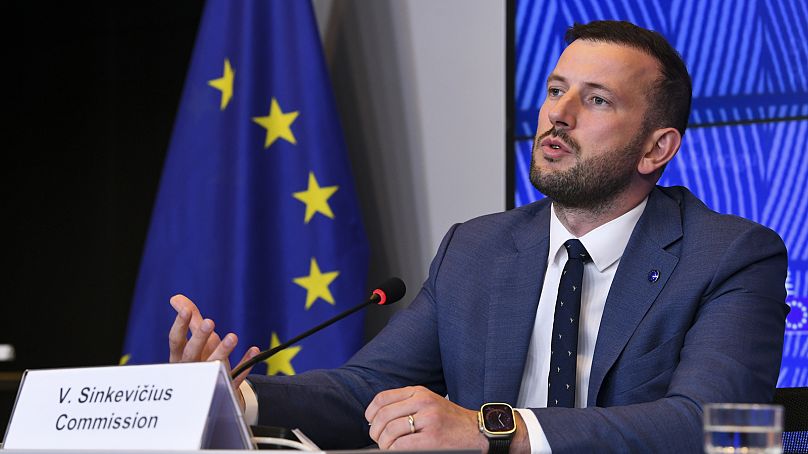Ambulance driver killed while aiding Palestinians injured in attack by Israeli settlers in the West Bank
Mia Alberti, Abeer Salman, Eyad Kourdi and Tim Lister, CNN
Sat, April 20, 2024 a
An ambulance driver from the Palestinian Red Crescent Society was killed while transporting Palestinians injured in an attack by settlers in the West Bank on Saturday, the Palestinian Ministry of Health said.
The 50-year-old driver, Mohammed Awad Allah Mohammed Musa, was killed when the ambulance was hit by gunfire, the Palestinian Red Crescent Society (PRCS) told CNN. Israeli settlers fired the shots, it said.
In a separate incident the Israel Defence Forces (IDF) detained another ambulance crew at the entrance of the Thabet Thabet hospital in Tulkarm, West Bank, the PRCS reported.
In pictures shared by the organization, the ambulance crew is seen siting inside an IDF vehicle while surrounded by IDF soldiers. PRCS says the crew was detained and interrogated while trying to carry out “humanitarian work.”
CNN has reached out to the IDF for comment.
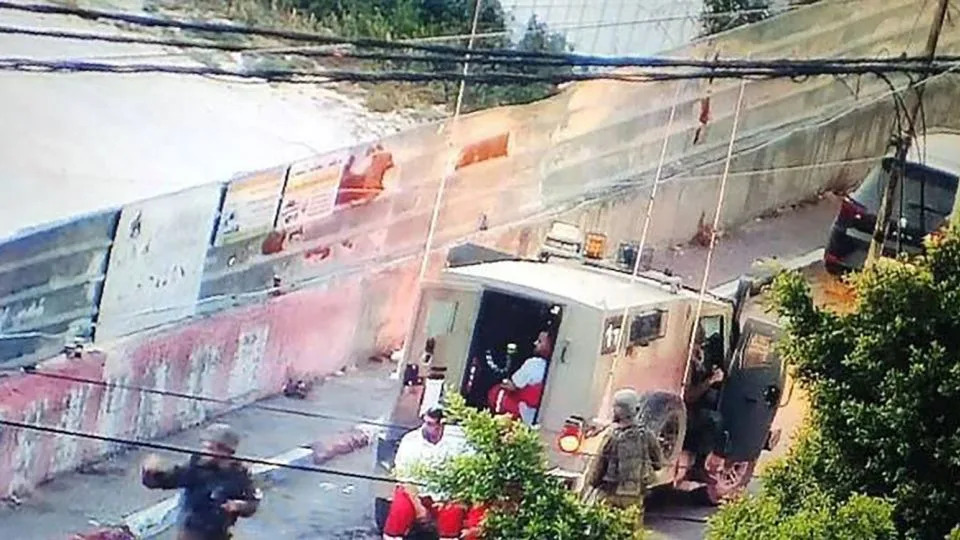
IDF soldiers detain an ambulance crew at the entrance of the Thabet Thabet hospital in Tulkarm, West Bank. The ambulance crew is seen siting inside an IDF vehicle while surrounded by soldiers. - Palestinian Red Crescent Society
Earlier on Saturday, the IDF said security forces had killed “10 terrorists” in an ongoing operation at the Nur Shams refugee camp, just East of Tulkarm, in the occupied West Bank.
It said in a statement that “IDF and Israel Border Police forces are continuing extensive counterterrorism activity in the area of Nur Shams. Thus far, the security forces eliminated 10 terrorists during encounters, apprehended eight wanted suspects, exposed explosive devices and routes, and conducted searches in structures.”
It said eight IDF soldiers and one Border Force officer were lightly or moderately injured.
The Palestinian Ministry of Health condemned both the detention of the ambulance crew and “the deliberate killing of an ambulance driver…on Saturday evening, while he was performing his humanitarian duty in transporting (people with) injuries from settler gunfire near the town of Al-Sawiya, south of Nablus.”
The ministry said in a statement that it “urgently calls on international health organizations, human rights institutions, and the International Committee of the Red Cross to urgently act to curb the escalating practices of the occupation and settlers against treatment centers and medical crews, and to allow them to perform their humanitarian duty.”
“The targeting of medics, ambulances, treatment centers, medical staff, obstructing their movement, and preventing them from reaching the wounded, constitutes a blatant and clear violation of international humanitarian law and international norms and treaties,” the ministry said.
For more CNN news and newsletters create an account at CNN.com
More than 14 Palestinians killed as violence flares in West Bank
Ali Sawafta and Nidal al-Mughrabi
Updated Sat, April 20, 2024
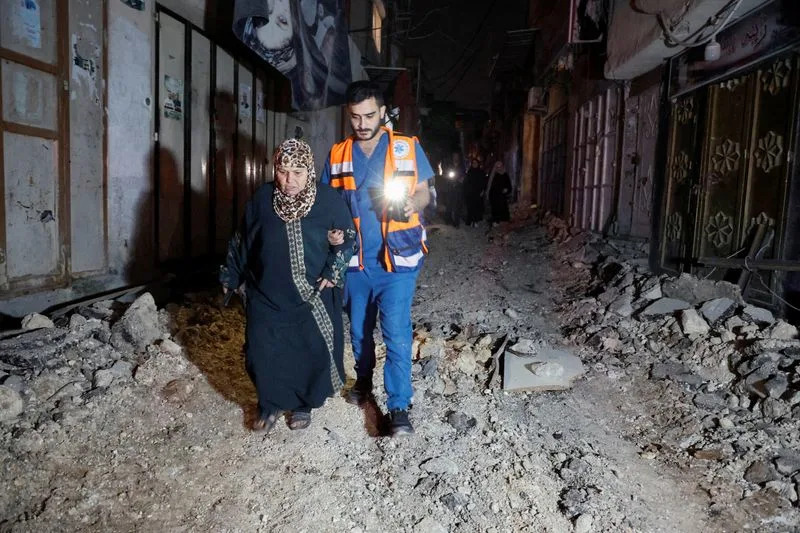
NUR SHAMS, West Bank (Reuters) -Israeli forces killed 14 Palestinians during a raid in the occupied West Bank on Saturday, while an ambulance driver was killed as he went to pick up wounded from a separate attack by violent Jewish settlers, Palestinian authorities said.
Israeli forces began an extended raid in the early hours of Friday in the Nur Shams area, near the flashpoint Palestinian city of Tulkarm and were still exchanging fire with armed fighters well into Saturday.
Israeli military vehicles massed and bursts of gunfire were heard, while at least three drones were seen hovering above Nur Shams, an area housing refugees and their descendants from the 1948 war that accompanied the creation of the state of Israel.
The Tulkarm Brigades, which groups forces from numerous Palestinian factions, said its fighters exchanged fire with Israeli forces on Saturday.
The West Bank, a kidney shaped area about 100 km (60 miles) long and 50 km wide that has been at the heart of the Israeli-Palestinian conflict since it was seized by Israel in the 1967 Middle East war.
The Gaza war has overshadowed continuing violence in the territory, including regular army raids on militant groups, rampages by Jewish settlers in Palestinian villages, and street attacks by Palestinians on Israelis.
Thousands of Palestinians have been arrested and hundreds killed during regular operations by Israeli army and police since the start of the Gaza war, most members of armed groups, but also stone-throwing youths and uninvolved civilians.
On Saturday, Palestinian health authorities said at least 14 Palestinians, two of whom were identified by Palestinian sources and officials as a gunman and a 16 year-old boy, were killed during the raid, one of the heaviest casualty totals in the West Bank in months. Another man was killed on Friday.
The Israeli military said a number of militants were killed or arrested during the raid, and at least four soldiers were wounded in exchanges of fire.
In a separate incident, the Palestinian health ministry said a 50-year-old ambulance driver was killed by Israeli gunfire near the village of Al-Sawiya, south of the city of Nablus, as he was making his way to transport people injured during the attack on the village.
It was not immediately clear whether he was shot by settlers. There was no immediate comment from the military.
GAZA STRIKES CONTINUE
In Gaza, where fighting has continued despite the withdrawal of most of Israel's combat forces earlier this month from southern areas, the death toll passed 34,000, Palestinian health authorities said on Saturday.
Israeli strikes hit the southern city of Rafah, where over one million Palestinians are sheltering, as well as Al-Nuseirat in central Gaza, where at least five houses were destroyed, and the Al-Jabalia area in the north, health officials and Hamas media said.
In Rafah, a strike hit a house and killed a father, daughter and pregnant mother, Hamas and Palestinian media outlets said. Doctors at the Kuwaiti hospital were able to save the baby, medics said, making the baby the family's only surviving member.
Five other Palestinians were killed in a separate Israeli air strike on the city before midnight, health officials said.
The Israeli military said troops were carrying out raids in central Gaza, where they were engaged in close quarter combat with Palestinian fighters.
Overall, Israeli strikes in Gaza killed 37 Palestinians and wounded 68 over the past 24 hours, Palestinian health authorities said.
Rafah is the last Gaza area that Israeli ground forces have not entered in a more than six-month war aimed at eliminating the Islamist Hamas group that rules the enclave, following the Hamas attack on southern Israel on Oct. 7, that killed some 1,200 Israelis and foreigners.
Israeli Prime Minister Benjamin Netanyahu has faced wide international opposition to the plan to attack Rafah, where the military says the last remaining organised brigades of Hamas are located and where the remaining 133 Israeli hostages are believed to be held.
(Nidal al-Mughrabi reported from Cairo, additional reporting by Maayan Lubell and James Mackenzie in Jerusalem, editing by Mark Heinrich, Frances Kerry, Mike Harrison, Sandra Maler and Cynthia Osterman)
Two Palestinians killed by Israeli troops in fresh West Bank violence
FRANCE 24
Sat, April 20, 2024

Israeli forces shot dead two Palestinians in the occupied West Bank on Sunday, the Palestinian news agency Wafa reported. The Israeli army said it had “neutralised” two assailants who had attempted to stab and shoot troops. The deadly incident comes after at least 14 people were killed during a multi-day Israeli raid further north in the West Bank, the Palestinian Red Crescent said on Saturday. Read our liveblog to follow today's developments in the Middle East.
Summary:
Israeli strikes on the southern Gaza city of Rafah overnight killed at least 13 people, including nine children, health officials said Sunday.
Israeli forces killed at least 14 Palestinians during a multi-day raid in the occupied West Bank, the Palestinian Red Crescent said on Saturday. An ambulance driver was also killed as he went to pick up wounded from a separate attack by Jewish settlers, the Palestinian health ministry said.
The US House of Representatives approved a $26 billion military aid package for Israel on Saturday that includes around $9 billion in humanitarian assistance for Gaza.
The US House of Representatives passed billions of dollars in new military aid to Israel which continues to prosecute its war against Hamas, despite growing international concern for the fate of civilians in Gaza.
(FRANCE 24 with AFP, AP & Reuters)
US sanctions ally of Israeli minister, entities backing 'extremist' settlers
Simon Lewis
Updated Fri, April 19, 2024
WASHINGTON (Reuters) -The United States on Friday imposed sanctions on an ally of Israel's far-right national security minister and two entities that raised money for Israeli men accused of settler violence, the latest actions aimed against those Washington blames for an escalation of violence in the Israeli-occupied West Bank.
The sanctions, in addition to those already imposed on five settlers and two unauthorized outposts already this year, are the latest sign of growing U.S. frustration with the policies of Israeli Prime Minister Benjamin Netanyahu.
The moves on Friday, which freeze any U.S. assets held by those targeted and generally bar Americans from dealing with them, hit two organizations that launched fundraising campaigns to support settlers accused of violence and targeted by previous sanctions, the Department of the Treasury said in a statement.
The Biden administration's moves against Israeli settlers have upset right-wing members of Netanyahu's governing coalition who support the expansion of Jewish settlements and ultimately the annexation of the West Bank, where Palestinians envisage a future state.
They come as the complex relationship between Washington and its ally Israel is tested by the war in Gaza and as the Biden administration urges Israel to show restraint in responding to retaliatory strikes by Iran.
Washington sanctioned Ben-Zion Gopstein, founder and leader of the right-wing group Lehava, which opposes Jewish assimilation with non-Jews and agitates against Arabs in the name of religion and national security. Gopstein has said Lehava has 5,000 members.
State Department spokesperson Matthew Miller said members of the group had engaged in "destabilizing violence affecting the West Bank."
"Under Gopstein’s leadership, Lehava and its members have been involved in acts or threats of violence against Palestinians, often targeting sensitive or volatile areas," Miller said in a statement, warning of additional steps if Israel does not take measures to prevent extremist attacks amid an escalation of violence in the West Bank in recent days.
The European Union also said on Friday it had agreed to take sanctions against Lehava and other groups linked to violent settlers.
A spokesperson for Israel's embassy in Washington did not immediately respond to a request for comment.
Gopstein, the most prominent Israeli figure targeted by U.S. sanctions, is a close associate of and has family ties to National Security Minister Itamar Ben-Gvir, who himself lives in a West Bank settlement.
Ben-Gvir, like Gopstein, was a disciple of the late Meir Kahane, an ultranationalist rabbi whose Kach movement was listed by Washington as a specially designated global terrorist organization.
Ben-Gvir on Friday slammed what he called harassment against Lehava and "our dear settlers who have never engaged in terrorism or hurt anyone," labeling the allegations against them a "blood libel" by Palestinian groups and anarchists.
"I call on Western countries to stop cooperating with these antisemites and end this campaign of persecution against the pioneering Zionist settlers," Ben-Gvir said in a statement released by his office.
CROWDFUNDING
Since the 1967 Middle East war, Israel has occupied the West Bank of the Jordan River, which Palestinians want as the core of an independent state. It has built Jewish settlements there that most countries deem illegal. Israel disputes this and cites historical and Biblical ties to the land.
The Biden administration in February said settlements were inconsistent with international law, signaling a return to long-standing U.S. policy on the issue that had been reversed by the previous administration of Donald Trump.
One entity targeted on Friday, Mount Hebron Fund, launched an online fundraising campaign that raised $140,000 for settler Yinon Levi, the Treasury said, after he was sanctioned on Feb. 1 for leading a group of settlers that assaulted Palestinian and Bedouin civilians, burned their fields and destroyed their property.
It said the second entity, Shlom Asiraich, raised $31,000 on a crowdfunding website for David Chai Chasdai, who the United States sanctioned for initiating and leading a riot that included setting vehicles and buildings on fire and causing damage to property in the Palestinian town of Huwara, resulting in the death of a Palestinian civilian.
“These types of enforcement actions against entities helping violent settlers evade U.S. sanctions are what give sanctions teeth," said Michael Schaeffer Omer-Man, director of research for Israel-Palestine at Democracy for the Arab World Now, a human rights group that has highlighted efforts by supporters to evade sanctions against settlers.
(Reporting by Simon Lewis; additional reporting by Henriette Chacar and David Ljunggren, editing by Susan Heavey, Chizu Nomiyama and Deepa Babington)
EU sanctions extremist Israeli settlers over violence in the West Bank
Mared Gwyn Jones
euronews
Fri, April 19, 2024

EU sanctions extremist Israeli settlers over violence in the West Bank
A political agreement on the move emerged among the bloc's 27 member countries last month, but technical work has delayed its implementation, prompting many countries - such as France and Belgium - to unilaterally impose national sanctions.
Some 490,000 Israelis live in settlements in the Israeli-occupied West Bank, which are considered a breach of international law. Attacks on Palestinians in the occupied territory have surged since the outbreak of the war between Israel and Hamas last October, causing around 460 deaths, according to the Palestinian health ministry.
Four individuals and two entities responsible for settler violence will as of Friday be blacklisted under the EU's human rights sanctions regime, meaning they will be banned from travelling to the bloc and their financial assets frozen.
The sanctioned entities are Lehava, a far-wing Jewish supremacist organisation, and Hilltop Youth, whose activities were recently halted by the Israeli Defense Forces for multiple incidents of violence and abuses against Palestinian civilians.
Two leading figures of Hilltop Youth, Meir Ettinger and Elisha Yered, are also targeted.
The move comes amid escalating violence in the West Bank, where tensions have deepened since a 14-year-old boy from a settler family was killed last Saturday.
NGO Human Rights Watch says Israeli settlers are displacing Palestinian communities by destroying their homes, and are responsible for assaults, torture and sexual violence against Palestinians.
The EU's high representative for foreign policy, Josep Borrell, has previously said that settler violence is one of the biggest obstacles to future peace in the region since settlers oppose the two-state solution which would give statehood to Palestinians.
The bloc has also repeatedly censured Benjamin Netanyahu's government for backing projects aimed at expanding settlements in the West Bank and areas around Jerusalem, and called for such decisions to be reversed.
In January, several members of the Israeli government joined a far-right conference promoting the construction of Jewish settlements in both the Gaza Strip and the West Bank.
The formal approval of the sanctions also comes as the bloc carefully calibrates its stance on the Middle East conflict following a rapid escalation in tensions between Israel and Iran.
Since Iran launched an unprecedented aerial attack on Israeli territory last Saturday, EU leaders have doubled down on their stance of solidarity with Israel but also urged Netanyahu's cabinet to exercise restraint.
Some capitals, however, want Brussels to toughen its stance on Netanyahu. Spain and Ireland have led calls to review the bloc's trade deal with Israel - the Association Agreement - to exert pressure on its government to exercise restraint in its Gaza offensive.
On Friday, Belgium's deputy prime minister Petra De Sutter claimed Belgium would "take the lead" to "re-evaluate" the EU-Israel Association Agreement.
"We call for an EU-wide import duty on products coming from illegal Israeli settlements," De Sutter said.
A note drafted by the EEAS - the EU's diplomatic arm - last December urged the EU to "enforce continued, full and effective implementation of existing EU legislation and bilateral arrangements applicable to settlements products."
Under EU legislation, Israeli products made by settlers should be clearly labelled as such and subject to less preferential customs arrangements, but the rules are not strictly enforced.
Aftermath of an Israeli raid at Nur Shams camp
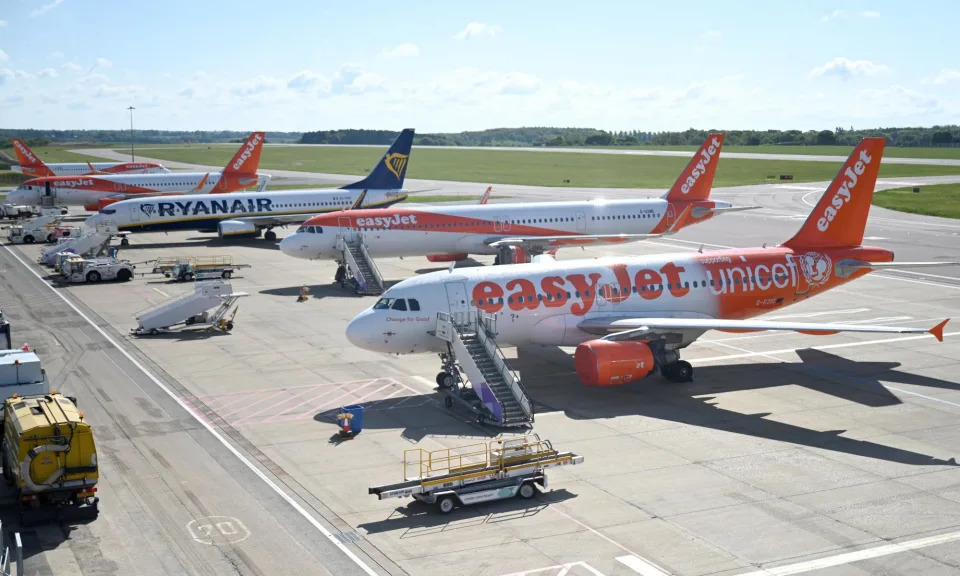




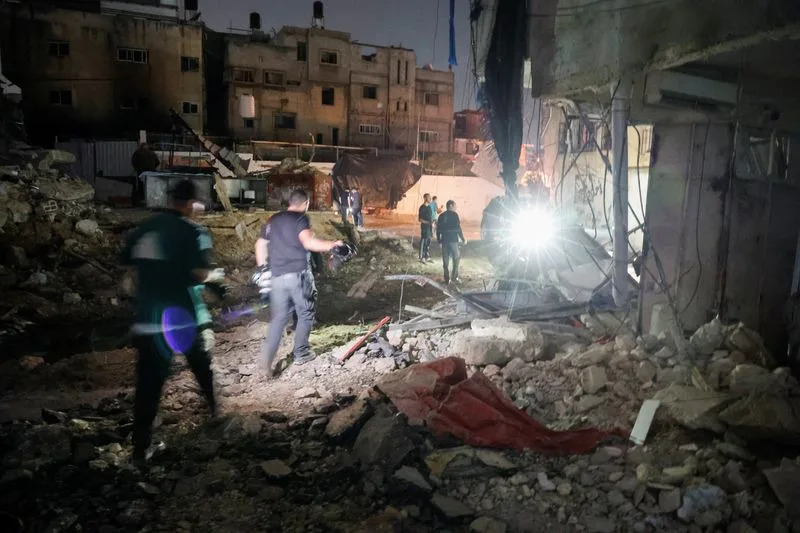
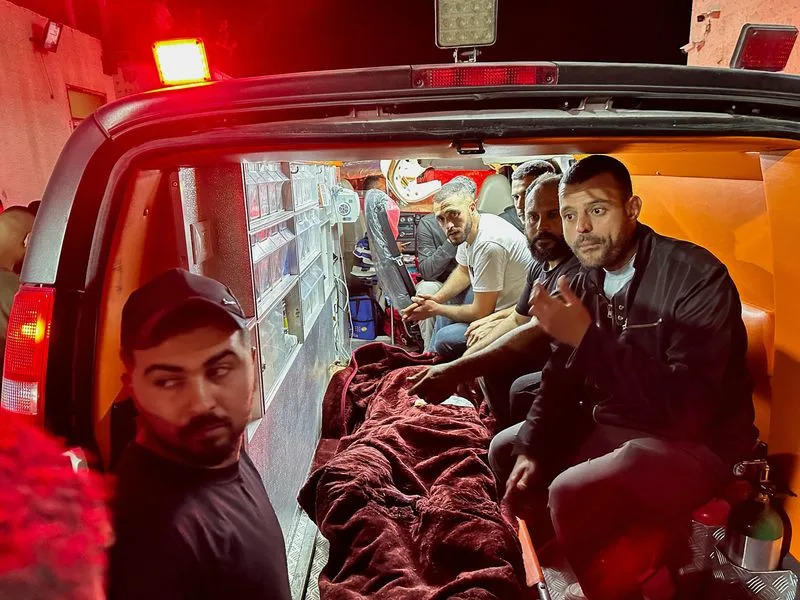

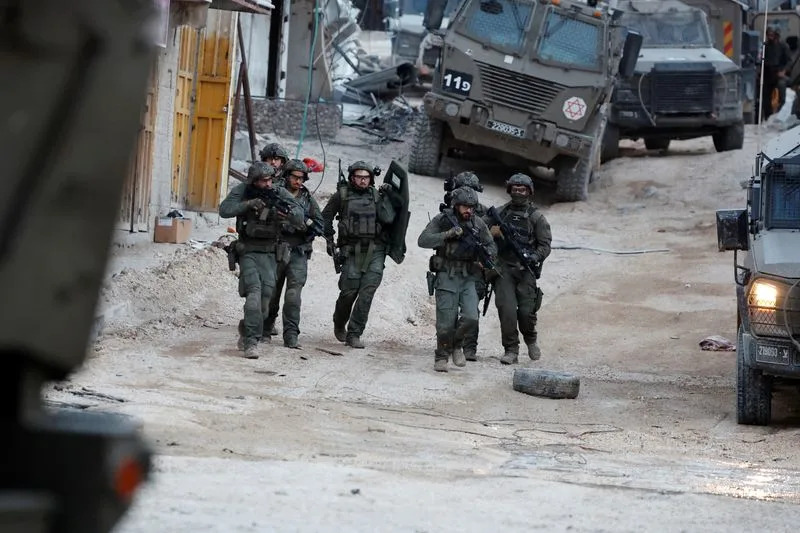
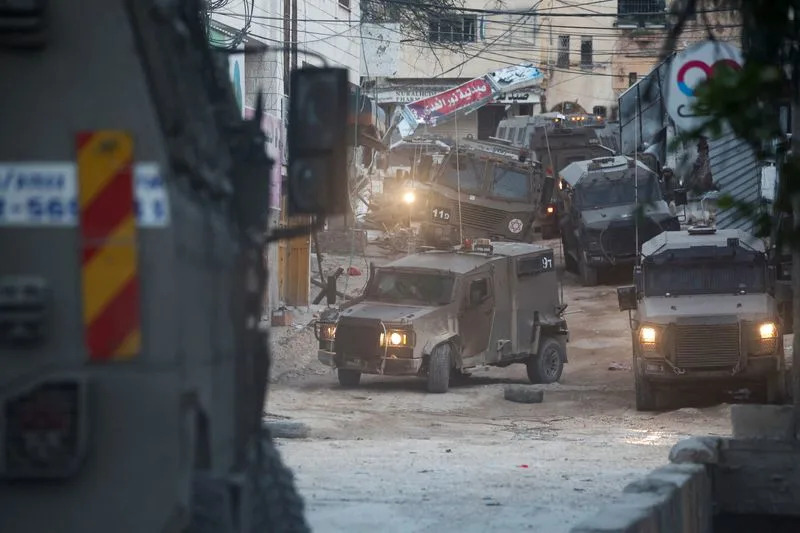

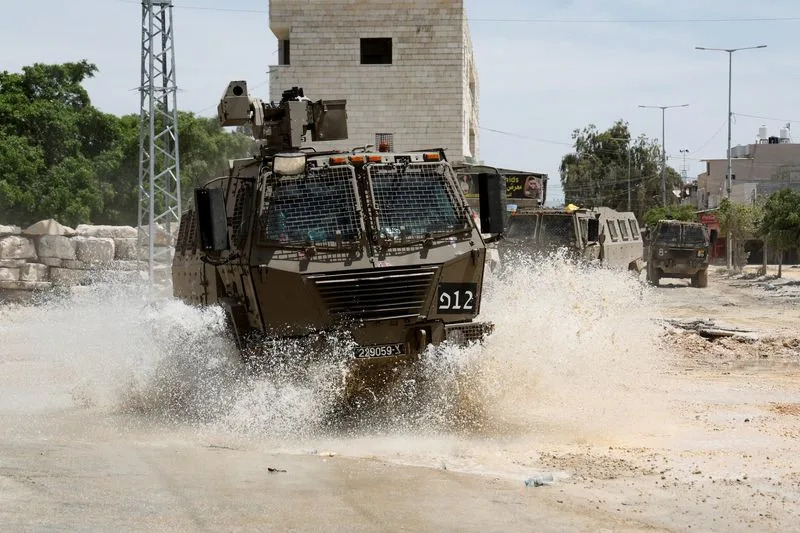


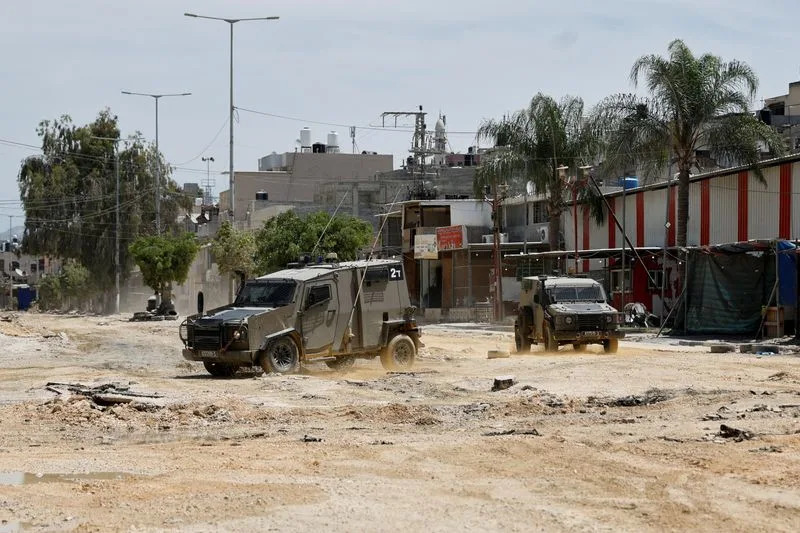
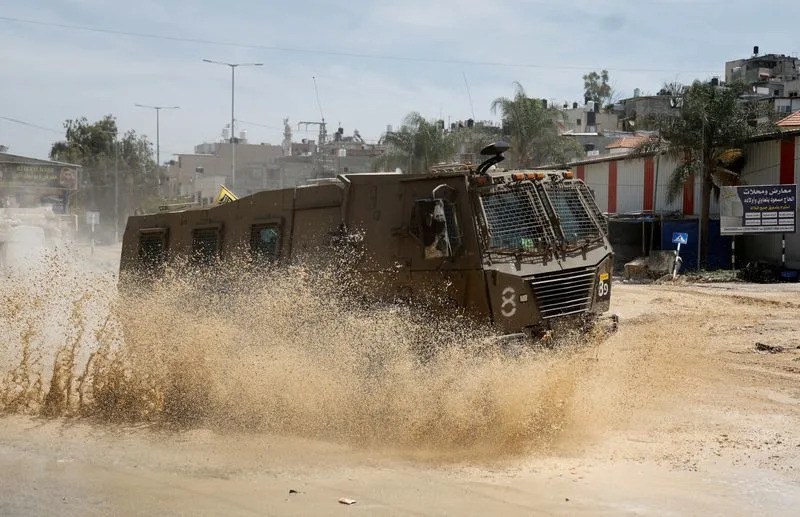
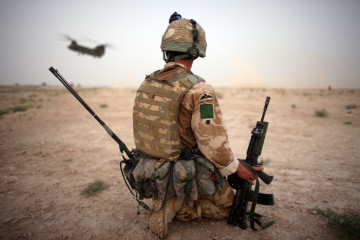


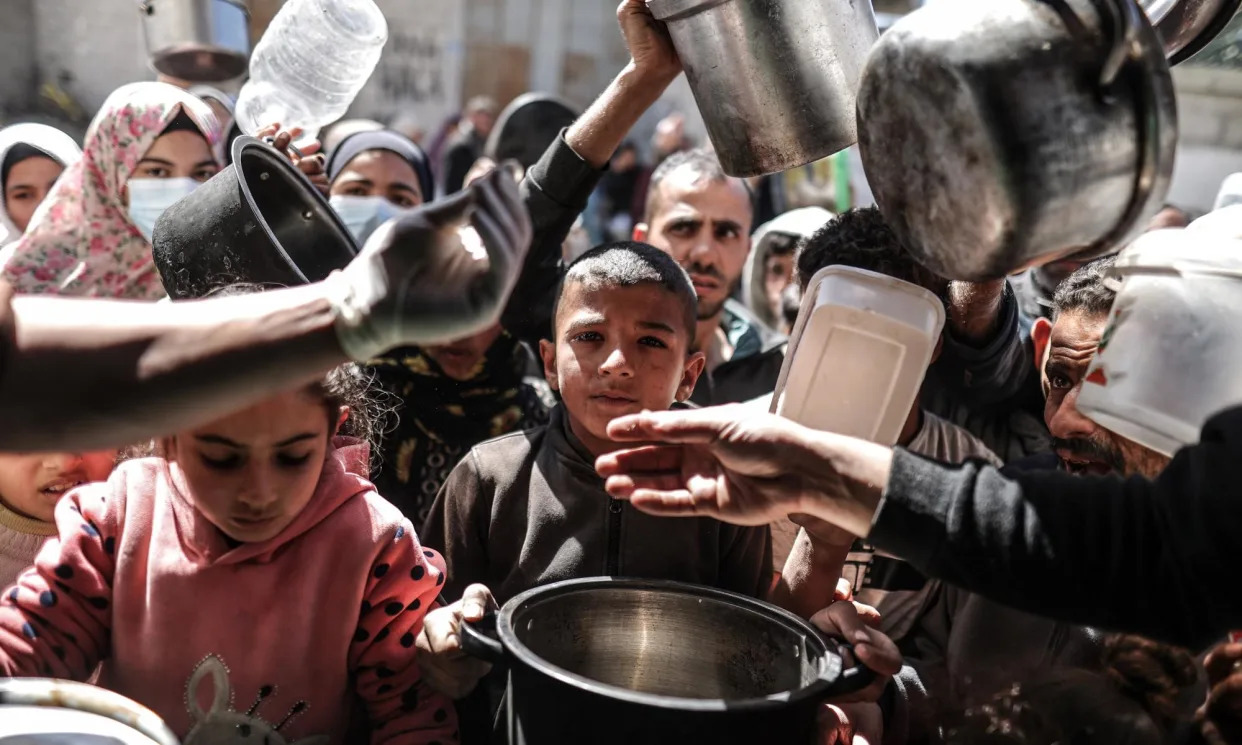

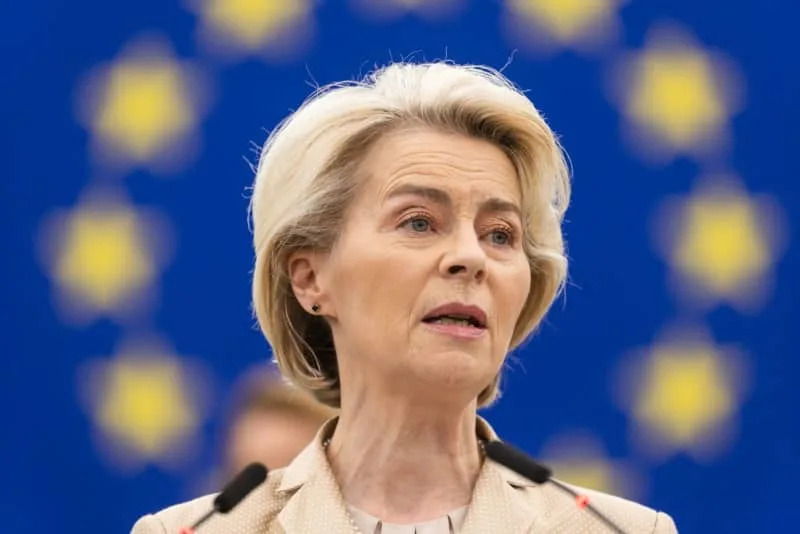
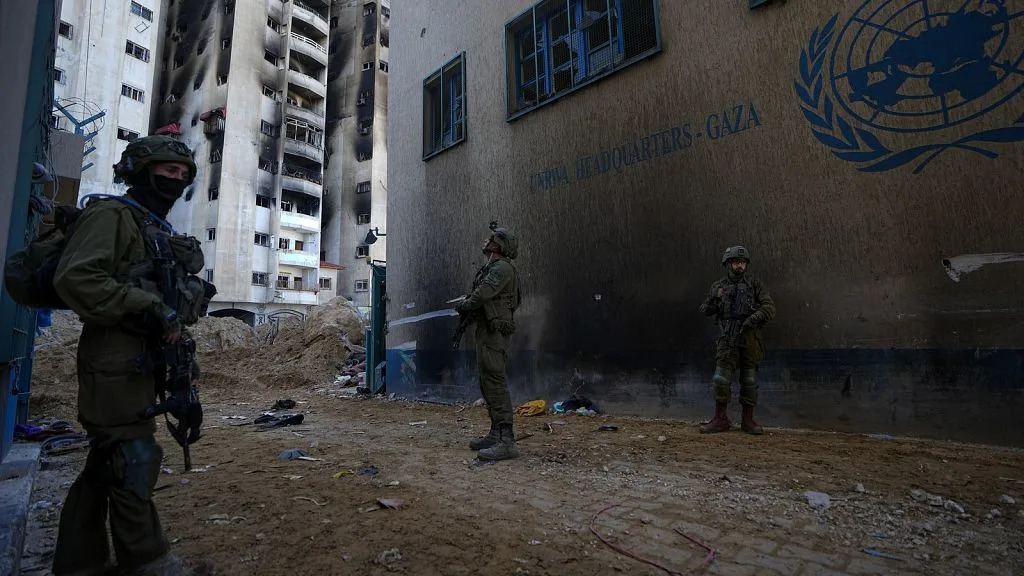



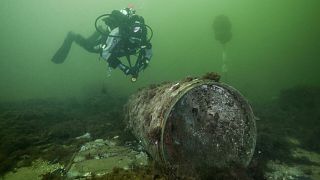 By
By
